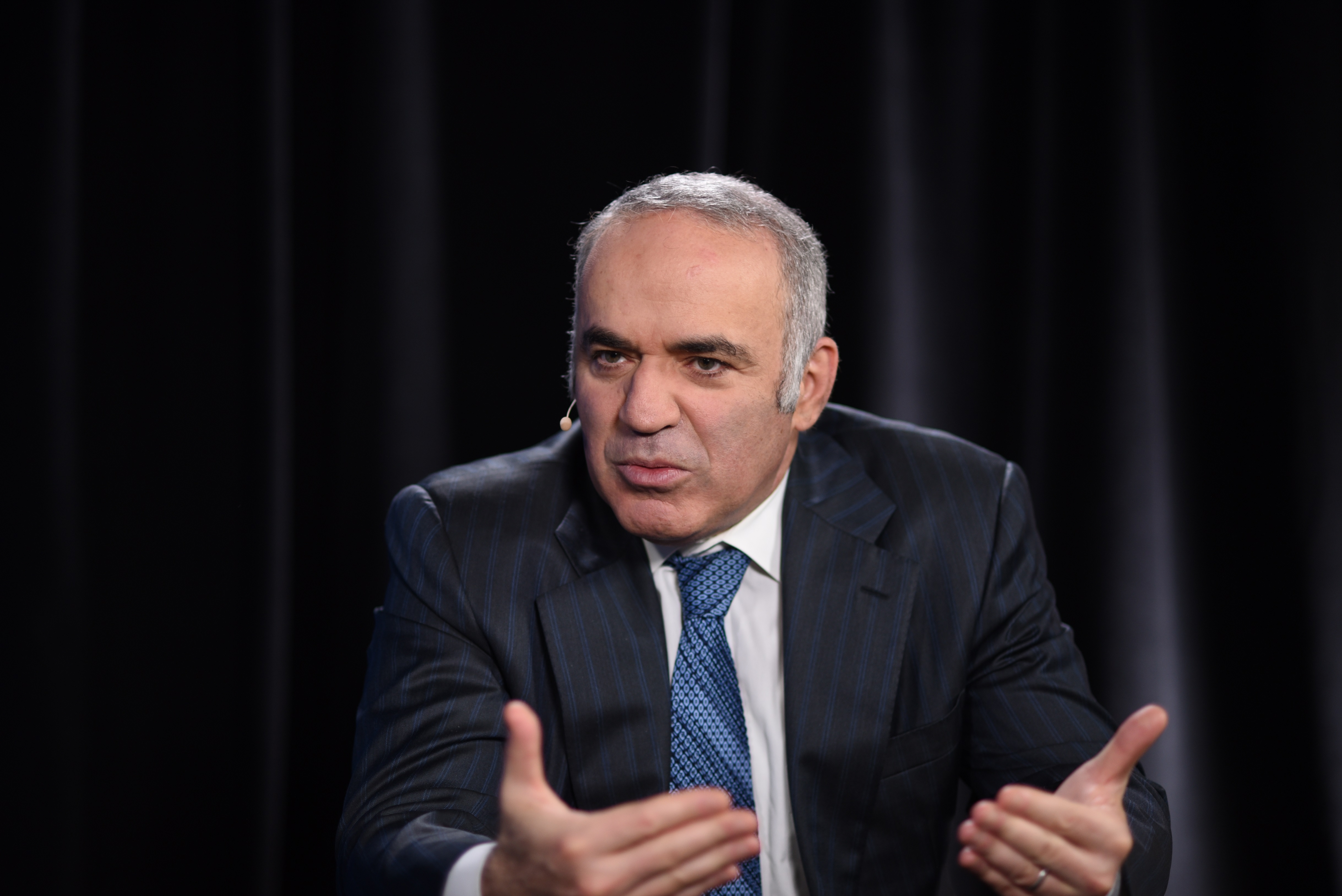 EMERGING TECH
EMERGING TECH
 EMERGING TECH
EMERGING TECH
 EMERGING TECH
EMERGING TECH
Former world champion chess player Garry Kasparov famously beat 32 computers at chess simultaneously before being defeated by the Deep Blue AI in 1997. Kasparov has since taken a firm stance in support of machine learning and claims that many critics do not understand the difference between an open and a closed system. Once these closed systems have their parameters and objectives well-defined, machines will augment human abilities but still require our guidance, according to Kasparov.
“If it’s an open-ended system, the machine will never identify what is the … right question to be asked,” said Kasparov (pictured).
Kasparov, chairman of the Human Rights Foundation and author of the book “How Life Imitates Chess,” spoke with Dave Vellante (@dvellante) and John Walls (@JohnWalls21), co-hosts of theCUBE, SiliconANGLE Media’s mobile livestreaming studio, during the IBM Signature Moment — Machine Learning Everywhere event in New York. They discussed the future of artificial intelligence and the impact it will have on humankind. (* Disclosure below.)
The expansion of machine learning into new areas of society will not erase jobs, according to Kasparov. As industries are disrupted, people will naturally move into sectors that require the type of cognitive processing that machines will not be able to achieve.
“The machine’s wheel will force a lot of talent actually to move into other areas that were not as attractive because there were other opportunities. There’s so many [of] what I call raw cognitive tasks that are still financially attractive,” Kasparov said.
People will transition into roles in which only a human’s intuition, vision and strategy can guide the machine to a solution. As these machines become more specialized in their closed systems, people also specialize in managing machines within these environments.
“We will have expert operators, I call them the shepherds, that will have to know exactly what are the requirements of this machine or that machine or that group of algorithms to guarantee that we’ll be able by our human input to compensate for their deficiencies,” Kasparov said.
Kasparov is a proponent of the idea of human and machine collaboration to augment capabilities and deliver a better outcome. In chess, for example, he explained that the best high-level human players suffer from mental fatigue, which produces inaccuracies.
“Humans cannot play at the same level throughout the whole game. The concentration, the vigilance are now required when humans face humans. Psychologically, when you have a strong machine, machines good enough to play with a steady hand, the game’s over,” he said.
With properly trained machines augmenting human exploration capabilities, new industrial opportunities can open up that were previously impossible for humans alone. Historically, discoveries of these new opportunities had been completely unintended and unforeseen, according to Kasparov.
“I see so many new challenges that we will be able to take, and challenges that we abandoned, like space exploration or deep ocean exploration, because they were too risky,” Kasparov concluded.
Watch the complete video interview below, and be sure to check out more of SiliconANGLE’s and theCUBE’s coverage of the IBM Signature Moment (IBM Machine Learning Everywhere) event. (* Disclosure: TheCUBE is a paid media partner for the IBM Signature Moment — Machine Learning Everywhere event. Neither IBM, the event sponsor, nor other sponsors have editorial control over content on theCUBE or SiliconANGLE.)
Support our mission to keep content open and free by engaging with theCUBE community. Join theCUBE’s Alumni Trust Network, where technology leaders connect, share intelligence and create opportunities.
Founded by tech visionaries John Furrier and Dave Vellante, SiliconANGLE Media has built a dynamic ecosystem of industry-leading digital media brands that reach 15+ million elite tech professionals. Our new proprietary theCUBE AI Video Cloud is breaking ground in audience interaction, leveraging theCUBEai.com neural network to help technology companies make data-driven decisions and stay at the forefront of industry conversations.